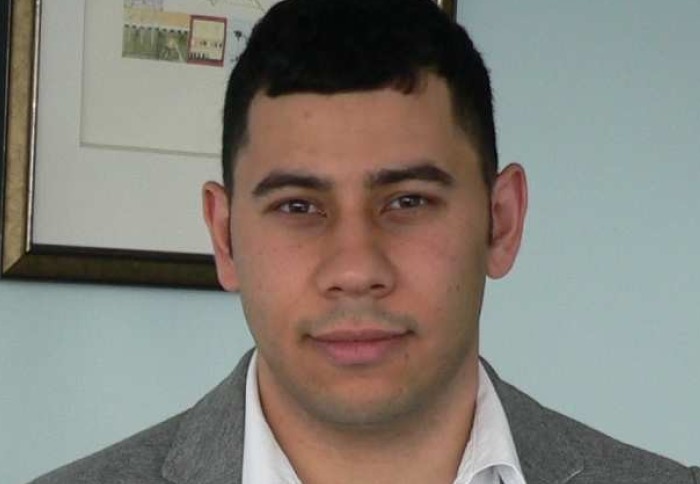Academic awarded fellowships for outstanding contribution to biochemical sensors
by Gemma Ralton

Dr Ali Yetisen, Department of Chemical Engineering
Imperial academic Dr Ali Yetisen has received two fellowships for his innovations in detection technologies and medical devices.
Senior Lecturer Dr. Ali Yetisen from the Department of Chemical Engineering has recently been awarded both the Fellowship of the Royal Society of Chemistry and the Fellowship of the Institute of Physics for his sustained contributions to medical diagnostics and optical materials.
Achieving Fellow status in both cases reflects a high level of accomplishment and leadership, with an outstanding contribution to the advancement of the clinical chemistry and the medical physics disciplines.
"Dr Yetisen has pioneered a new generation of biochemical sensors that can continuously report on key biomarkers at point-of-care settings." Dr Roberto Rinaldi Department of Chemical Engineering
Dr Yetisen’s work on biochemical sensors has advanced medical diagnostic devices that allow for monitoring of high-risk patients in clinical and point-of-care settings.
The applications of these biochemical sensors include clinical chemistry instruments in blood analysis, real-time wearable devices in sports medicine, ophthalmic devices in eye disorder detection and minimally-invasive implantable systems in continuous biomarker monitoring.
For example, he conceived and developed optical fabrication method to create micro fluidic devices in contact lenses that can collect, process and analyse biological substances in tears. The contact lenses can optically detect tear biomarkers to diagnose in dry eye disease, glaucoma and neurodegenerative diseases.
Professor Sergei Kazarian and Dr Roberto Rinaldi both nominated Dr Yetisen for the awards. According to Professor Kazarian: “Dr Yetisen’s fundamental research in laser interference lithography has underpinned the foundation of holographic biosensors for application in real-time biomarker detection. Integrated with applied spectroscopy methods, this unique sensing technology will inspire microfluidic lab-on-a-chip devices and portable medical analysers.”
Dr Roberto Rinaldi said: “Dr Yetisen has pioneered a new generation of biochemical sensors that can continuously report on key biomarkers at point-of-care settings. These real-time biochemical sensors have tremendous potential from wearable glucose monitoring systems in diabetes management to implantable probes in neurotrauma care.”
Article text (excluding photos or graphics) © Imperial College London.
Photos and graphics subject to third party copyright used with permission or © Imperial College London.
Reporter
Gemma Ralton
Faculty of Engineering